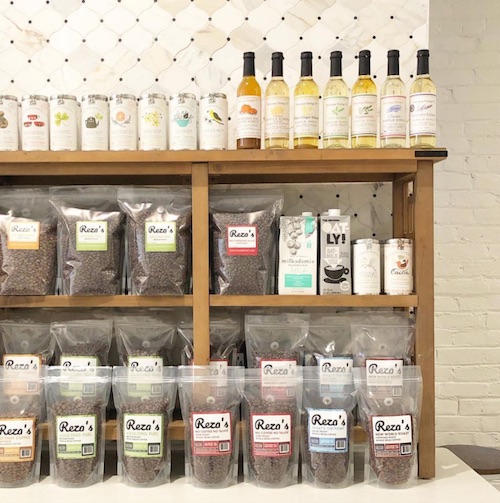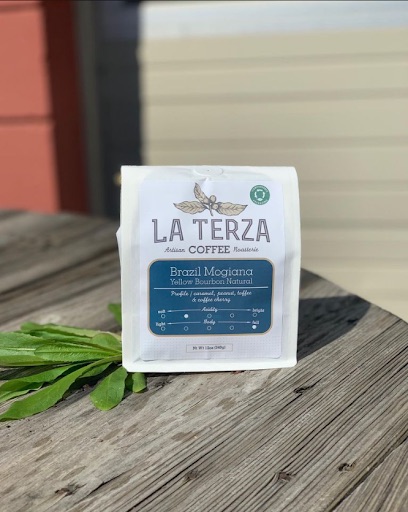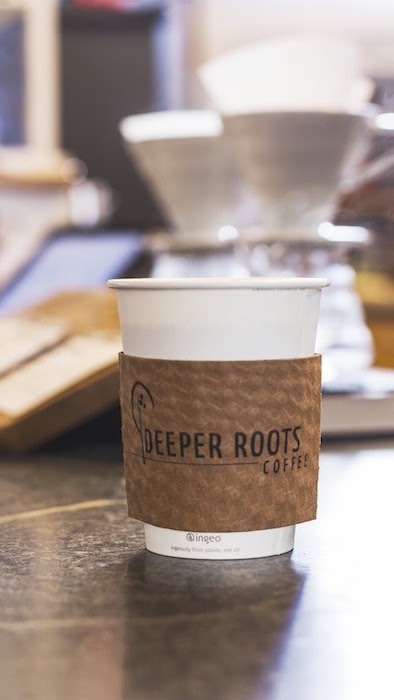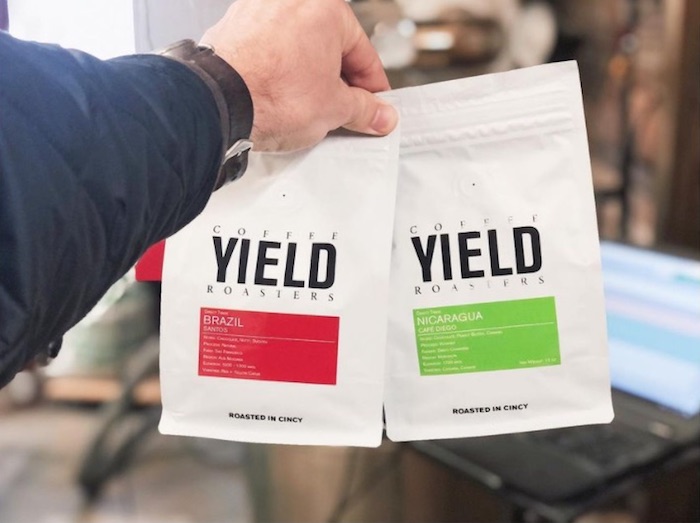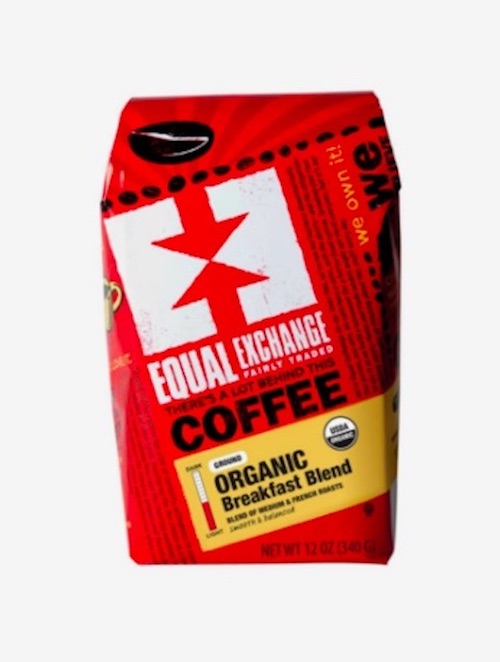Let's Talk Human Rights

Coffee Spotlight Series
By Hannah Nicholas '20, Jaimie Franz '21
Early mornings and late-night cramming sessions for college students around the world share something in common, the beverage they are drinking - COFFEE! As an international commodity, coffee is loved by many around the world. Whether it’s the conversations that are formed around a cup of joe, or the inviting smell that makes us feel ready and renewed for the day, coffee satisfies more than just the physiological need for beverages. Unfortunately, due to the astonishing global demand for coffee, this industry is considered to be one of the largest worldwide perpetrators of forced labor.
Forced labor is a violation of human rights, as workers are coerced to work long hours in harmful conditions with insufficient pay. In countries around the world, predominantly, but not limited to, in Africa, Asia, Central and South America, coffee farmers and workers are often exposed to health and safety risks, including the use of toxic pesticides without protective equipment. However, there are various nonprofit organizations and coalitions that are striving towards improved human and workers’ rights for farmers and their employees. These rights include guaranteeing workers the means necessary to satisfy their basic needs, such as food, housing, and education.
So what do human rights look like in practice and how can we join the cause to help ensure ethical working conditions for coffee farmers? One way to help is through supporting your local coffee shops and businesses instead of large chain corporations. Many independent coffee shops have direct relationships with their roasteries and farms. In a direct trade relationship, issues pertaining to pricing and quality are defined and agreed upon between the producers and roasters. Through these nurtured relationships, both parties receive the long term mutual benefits of transparency and traceability. Moreover, by sourcing ethically made coffee, roasters can have greater control over the quality and social sustainability of their beans.
It is easy to gaze in a coffee house, read a pamphlet or two, and believe a company has ethical and sustainable principles. However, there is a vast amount of work that goes on behind the scenes for a company to proclaim and enforce these values. As a consumer who obtains purchasing power over businesses, it is our duty to become educated and understand how a company can prioritize fair and equal treatment to coffee farmers around the world.
Over the summer, we conducted virtual in-depth interviews with six unique coffee vendors. These vendors have made it an integral part of their mission to develop long-lasting, mutually beneficial partnerships by employing ethical practices with the farmers who cultivate their crops. We highlight them here and through this blog and one each month on HRC social media platforms: Instagram, Twitter, Facebook, and LinkedIn.
Our Picks
Reza’s
Reza's is a specialty coffee roasting company located in Dayton, Ohio. Ethical buying practices are core to the company's beliefs. Owners Audria and Ebi Maki and their children travel to every farm before considering buying their products. In order to learn more about the farm’s sustainability and ethical practices, Reza’s requires information regarding the treatment of both the farmers and pickers. Long-term relationships with their farmers and a deep understanding of how the beans get from plant to shipping container enables Reza’s to buy the best quality coffee. Through these extra steps, Reza’s demonstrates its commitment to direct trade transparency.
La Terza
La Terza Coffee is an artisanal coffee and espresso roasterie that specializes in freshly and expertly roasted coffee beans. La Terza makes it a priority to work directly and transparently with coffee farmers and suppliers from around the globe. Through partnering with small, authentic farms and estates, La Terza guarantees fair and ethical working conditions for their farmers. Since La Terza works with direct trade, they know where every bean comes from, thus ensuring that each farmer and worker is paid a dignified, fair trade wage.
Deeper Roots
Beginning in Cincinnati, Deeper Roots Coffee set out on a mission to improve the ethics of the coffee business. To achieve this, they advocate for small farmers and communities abroad and in Ohio. They do this by pushing coffee house owners and themselves to reach out to the community at home and by educating the farmers abroad on the worth of what they are selling to the U.S. This enables the farmers to know what a fair wage actually is for all their hard work. Deeper Roots Coffee also pushes for sustainability throughout its company in packaging, an example being their 12oz packages of coffee in biodegradable bags. If you stop in their shop you will not only find a delicious cup of coffee, but also be able to taste fair trade chocolate and other goodies.
319 Coffee
319 Coffee was started by two University of Dayton alumni in hopes of promoting social good and the empowerment of art and self-expression through a cup of coffee. The owner’s main focus is to build a community here in the U.S. and abroad where they source coffee in countries such as Guatemala, Honduras, Colombia, Brazil, Ethiopia, and Indonesia. They support farmers and their surrounding communities by paying fair wages and investing time into the community by supporting community-led programs that involve art and self-expression for the youth of the area.
Yield Coffee Roasters
Yield Coffee was born out of a desire to change the world through specialty coffee and sustainable development. As a small-batch specialty coffee roasting company, its mission is to transform lives through direct-trade, ethical practices, and relational coffees. Every coffee tells a story and Yield Coffee desires to highlight the farmers, the families, and the communities these exceptional coffees represent. Their approach to sourcing coffee is full transparency, direct trade, and through relationships with the farmers, cooperatives, and communities they work alongside.
Equal Exchange
Equal Exchange has been brewing delicious coffee for over 25 years. Their business was formed through what, at that time, seemed like a novel idea: what if food could be traded in a way that is honest and fair, in a way that empowers both farmers and consumers? Their answer to that question was to start a business that was worker-owned. Their co-op has over 100 workers/owners, each holding equal shares and voting rights in the business. This structure has created a unique focus on ethics where people are investing in the company to improve sustainability, instead of focusing on monetary gain. Equal Exchange consistently gets top marks for its care for people and the planet.
Hannah Nicholas’ 20 is pursuing a B.S. in Finance and Operations and Supply Chain Management, graduating in December of 2020. Through her involvement with the Human Rights Center and other experiential learning opportunities, Hannah has grown her passion for corporate social responsibility, sustainability, and social justice.
Jaimie Franz’ 21 is a senior at the University of Dayton studying International Business Management with a concentration in Global Studies. She hopes to work one day with international law, focusing on sustainable globalization of the world. She increases her experiences of working on similar topics with her work at the Human Rights Center and her professional fraternity on campus, Epsilon Nu Tau.

